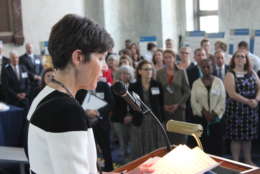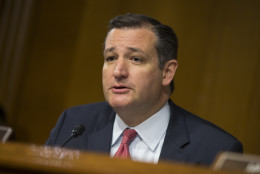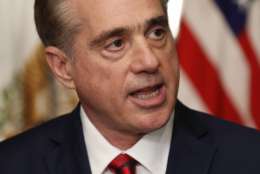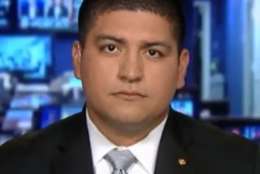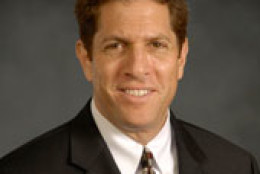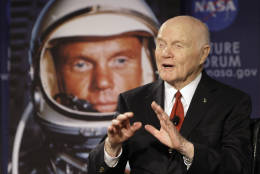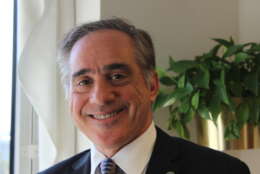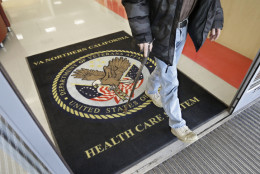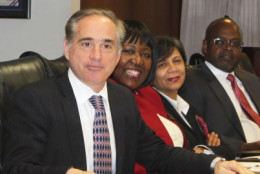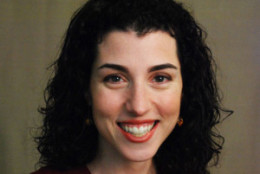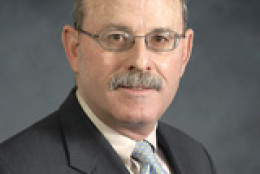Veterans Health Administration
-
The latest research and advancements from the Veterans Affairs Department include a power-wheelchair that can climb stairs and curbs, new prosthetics and a powerful study on the impacts of opioids.
July 05, 2018 -
A small group of senators says the Veterans Health Administration should have its own chief information officer, who would report to the department's undersecretary for health and would oversee all management and procurement decisions related to the health administration's IT systems. It's one of a few specific recommendations from the VA Commission on Care that are beginning to appear in new pieces of legislation.
July 05, 2017 -
A Veterans Affairs Inspector General report caused the agency to take immediate action and rethink who it put in charge of the Washington, D.C. medical center. The report detailed serious deficiencies in inventory management, including surgeries and other procedures being performed with expired or possibly non-sterile materials, or postponed due to a lack of supplies altogether.
April 13, 2017 -
Veterans groups are calling for an 8.3 percent increase in medical funding for the Veterans Health Administration and a 10 percent overall increase for the Department of Veterans Affairs next year. Carlos Fuentes, legislative director for the Veterans of Foreign Wars, joined Federal Drive with Tom Temin to provide details on 'independent budget' recommendations and others.
March 22, 2017 -
Human resource issues hinder the Veterans Health Administration ability to recruit and hire best medical staff. Robert Goldenkoff, GAO director of strategic issues, discusses on Federal Drive with Tom Temin some suggestions the agency has to fix VHA's problem.
February 09, 2017 -
Welcome to the #FedFeed, a daily collection of federal ephemera gathered from social media and presented for your enjoyment.
December 08, 2016 -
Dr. David Shulkin, the undersecretary for health at VA, says the agency needs better integration with private sector medical providers in order to "re-engineer" the way veterans access treatment.
April 14, 2016 -
Roughly half of a congressionally appointed commission to reform the Veterans Affairs Department suggested an expansion of community care for veterans and a systematic closure of some VA medical facilities. The "strawman document" emerged as the VA pilots a few new programs to help veterans gain more control over their health care.
April 08, 2016 -
While new laws and programs have focused on patients, employee morale remains low at the Veterans Health Administration. As long as that remains the case, patients will not get the best from the VA's health system, says VA Under Secretary of Health Dr. David Shulkin.
November 11, 2015 -
Mark Day, the General Services Administration’s deputy assistant commissioner in the Integrated Technology Services office in the Federal Acquisition Service, and Kathleen Turco, the chief financial officer for the Veterans Health Administration, are among a growing wave of longtime federal employees retiring.
November 02, 2015 -
A new study says the Veterans Health Administration has the structure to be a great healthcare provider, but it needs changes to make the system work.
October 07, 2015 -
The Veterans Health Administration ran out of money this fiscal year. It was about to close hospitals before Congress stepped in to help. To make sure this never happens again, Dr. David Shulkin, VHA’s new leader, has told his chief medical officers to work closely with financial managers. Chief Financial Officer Kathleen Turco tells Federal News Radio’s Emily Kopp more.
September 10, 2015 -
Thirty-nine out of 41 of the Veterans Affairs Department's outpatient leasing projects -- worth about $2.5 billion -- are running behind schedule. Delays range anywhere between six months to 13 years. Most of the delays happened before the VA began the lease agreement because the Veterans Health Administration didn't detail the project's requirements on time. Dave Wise is a director of physical infrastructure issues at the Government Accountability Office. He testified recently before the House Oversight and Government Reform Subcommittee on National Security. He tells In Depth with Francis Rose the reason behind most of the delays and where in the leasing process things started to slow down.
July 06, 2015 -
The Department of Veterans Affairs says it has made significant gains over the past several months in paying its health care vendors on time. Providers tell a different story, and say the department routinely fails to comply with the Prompt Payment Act.
June 05, 2015 -
The Veterans Independence Act aims to restructure the Veterans Health Administration. The Act comes from the advocacy group Concerned Veterans of America, and it proposes a new business model for the agency that separates veteran health care plans from specific hospitals and facilities. Darin Selnick is executive director of the Fixing Veterans Health Care Taskforce, and senior veterans affairs adviser for Concerned Veterans for America. On In Depth with Francis Rose, he said this factor, and three other key factors, will remove the bureaucracy from veterans health care.
April 02, 2015

